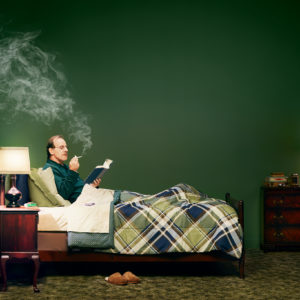Residents of Multi-Unit Housing Complexes
Going Smoke-Free Matters! If the complex that you live in doesn’t have a smoke-free policy, you may be inhaling another person’s secondhand smoke! The only truly effective way to reduce exposure to secondhand smoke in multi-unit housing is to create a 100% smoke-free policy on the premises and make sure it gets enforced.
Looking for a smoke-free home? Check out our list of properties with voluntary smoke-free policies – Smoke-Free MUH North County List
Benefits of Smoke-Free Multi-Unit Housing
A Smoke-Free policy protects you and your neighbors’ health and safety. Your neighbors may have children, be disabled, be elderly, and/or have a compromised immune systems. Lowering the amount of secondhand smoke a person is exposed to lowers the chance of acquiring respiratory problems or chronic illness associated with secondhand smoke and thirdhand smoke.
Tips to Address Exposure of Secondhand Smoke in Multi-Unit Housing
- Review Your Smoke-Free Policy. It’s important to know if your lease mentions if and where smoking is allowed. If a neighbor is violating the policy, inform your property manager.
- Talk to Your Neighbor who is Smoking. Your neighbor may not be aware their smoke is coming into you home. Share how and when the secondhand smoke is drifting into your unit and how it’s impacting the health of your household members. Request if they can smoke elsewhere.
- Request Reasonable Accommodation. If there no smoke-free policy you can request for Reasonable Accommodation. What is and What Qualifies for Reasonable Accommodation? See sample letter on How to Ask For Reasonable Accommodations.
- Journal Occurrences. It’s important to document ALL occurrences of secondhand smoke drifting your home, conversations with neighbors and property manager and doctor visits.
- Obtain a Doctor Letter. You can ask your healthcare provider to provide you a letter about how exposure to secondhand smoking impacts your health or the health of someone in your household.
- Get advice from legal experts. Contact Legal Aid Society of San Diego for assistance, support and advice.
- Request Property Manager or Owners to go Smoke-Free. There are local tobacco control programs that can provide your property manager free technical assistance to adopt a smoke-free policy. See Owners & Property Managers for more information.
- Write a Letter to Local Policy Makers. It is important to educate and inform our policy makers of the pressing issues of secondhand smoke exposure in the community. This information will provide insight on potential smoke-free ordinances that can protect the health and quality of life of their communities at large. To find your policy maker, visit the San Diego County Register of Voters.
Additional Resources
Did we miss anything? Here are a few more documents to help you navigate steps to go smoke-free.
- How Disability Laws Can Help Tenants Suffering From Drifting Tobacco Smoke
- Resources and Tools for Smoke-free Multi-Family Housing Secondhand Smoke Exposure and Tenants’ Rights
- Smoke Free Housing in Multi Unit Residences
- There is no Constitutional Right to Smoke
Helpful Websites
See below for other tobacco control organizations who can help you to go smoke-free.
- Americans For Nonsmokers Rights
- Legal Assistance for Seniors
- Tenants Legal Center of San Diego
- Tobacco Free California
- Legal Aid Society of San Diego
If you need personal assistance in what steps to make if your apartment is affected by secondhand smoke, contact Lorenzo Ricardez, Program Supervisor at [email protected] or 760-631-5000 ext 7166.
Follo w us on Facebook @vcctobacco for resources, information, local, state and national tobacco-related news and upcoming events and trainings
w us on Facebook @vcctobacco for resources, information, local, state and national tobacco-related news and upcoming events and trainings
Follow us on Instagram @sdstayinformed to stay up-to-day on VCC Tobacco Control events, news and facts



